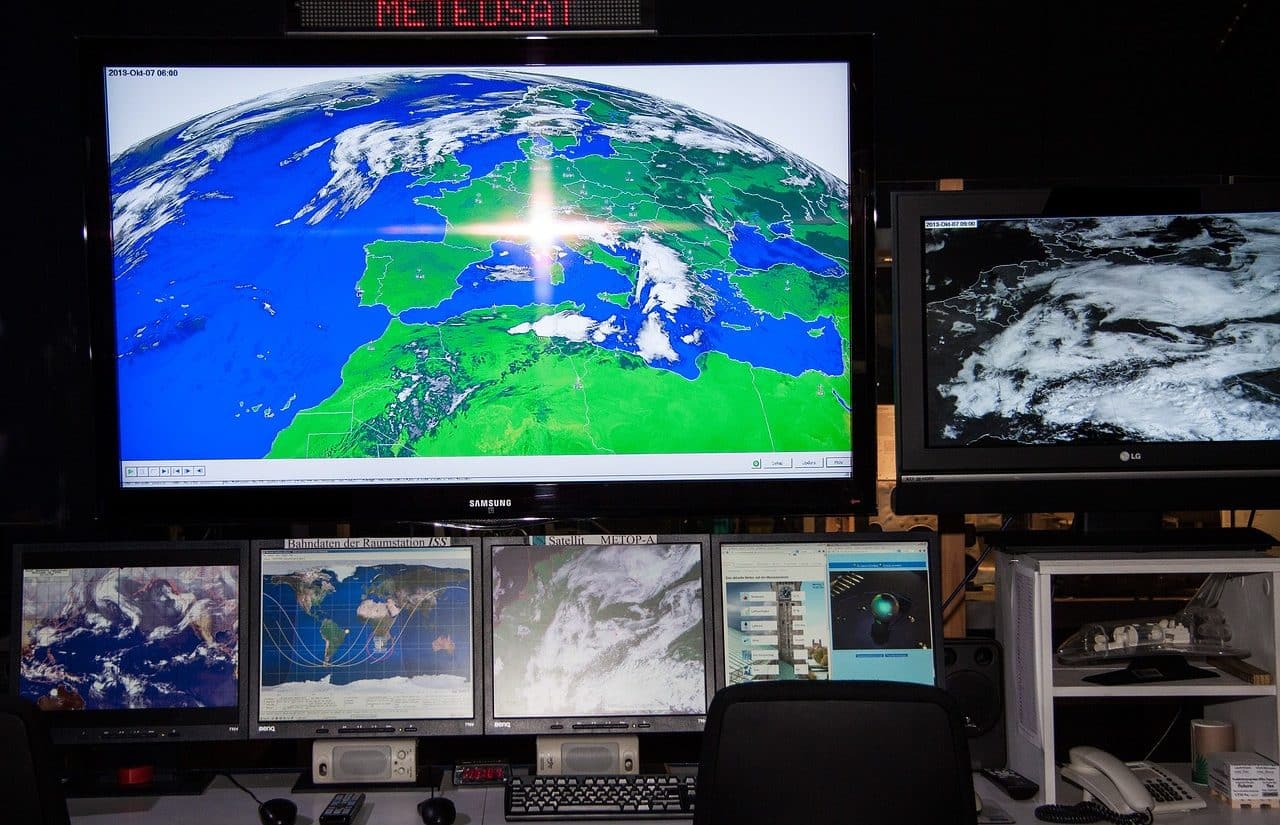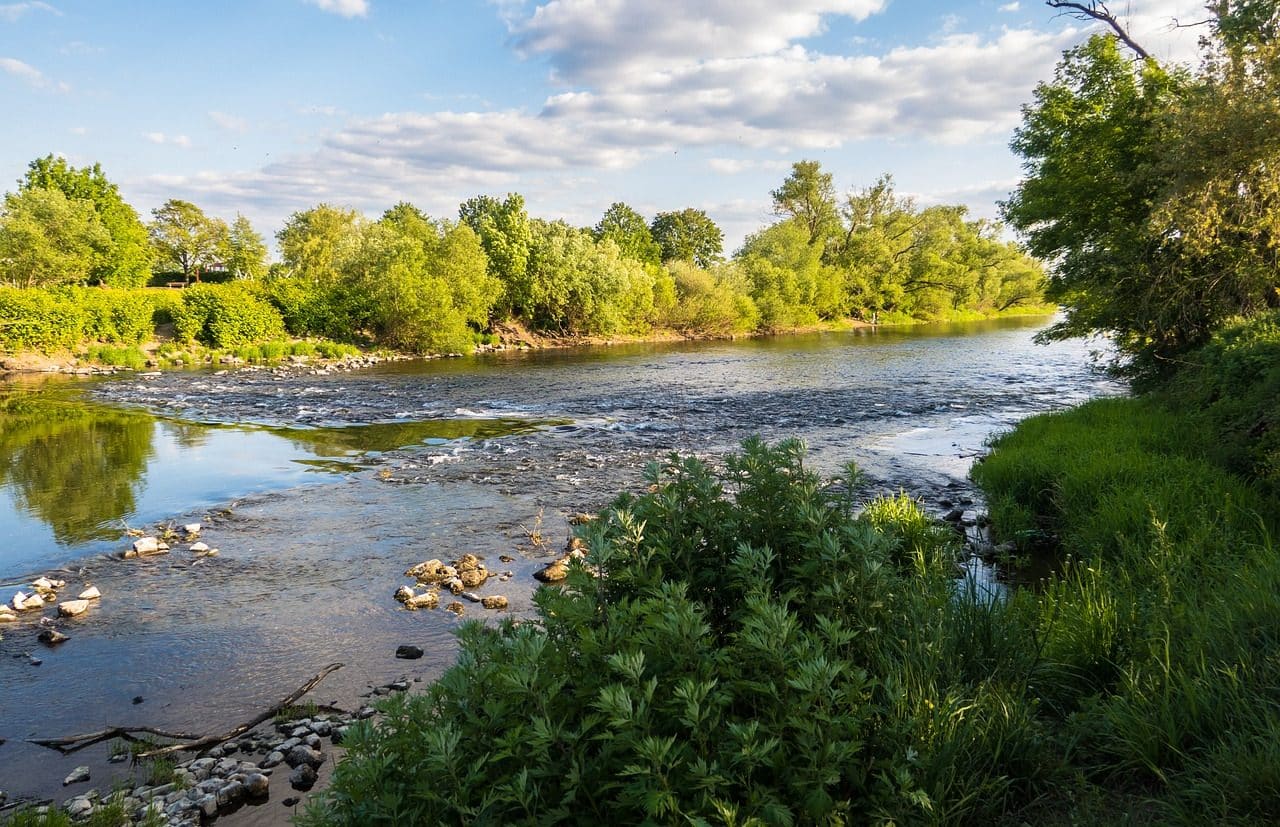
The fall of rainwater constitutes one of the phases of the water cycle.
The water cycle is the set of successive changes of state that water goes through as it circulates through the various zones of the hydrosphere (that is, through all the liquid parts of planet Earth ).
It should be noted that cycle is a concept that comes from the Latin word cyclus , in turn derived from the Greek kýklos (which translates as "circle" ). It can refer to the series of modifications that a body registers until it returns to its initial state; to a time period that encompasses various distinctive phenomena; or to the succession of stages or phases that are repeated in a certain order or periodically, for example.
Water , meanwhile, is the substance that has molecules formed by one oxygen atom and two hydrogen atoms , which are joined together through a covalent bond. It is the main component of living beings.
Development of the water cycle
It is important to indicate that water is always moving and changing its state . This cycle, which has been developing for a long time, is essential for life to exist on Earth .
Water on our planet is present in different states. In greater proportion, it is found in a liquid state (in the seas, rivers, lakes, etc.), although it also appears as a solid (the ice of glaciers and mountains) and as a gas (water vapor and clouds). of the atmosphere).
The water cycle, also known as the hydrological cycle , occurs with the evaporation of surface water by the action of the sun ; with the precipitation of rain from the clouds; and with the infiltration of liquid water into the earth. It must be taken into account that the amount of water does not vary, but rather this substance circulates and is conserved thanks to this cycle.
It can be indicated that solar energy drives the water cycle. The sun's rays make it possible for some of the water in the oceans and other bodies of surface water to evaporate, which rises into the atmosphere as vapor. Then, with the condensation of that vapor, the water returns to the surface as precipitation. The fallen water, in different proportions, filters into the ground, flows over the surface and evaporates again, continuing the cycle.

The variables studied by climatology and meteorology affect the water cycle.
The impact of human beings
Although the water cycle occurs naturally, human activity affects its development. Climate change , in fact, has a close link with this cycle.
Industry , agricultural practices , deforestation , the construction of dams and urbanization are some of the factors that, directly or indirectly, introduce changes in the water cycle.
It cannot be ignored that the precipitation regime and water runoff influence the dynamics of other elements, such as the nitrogen cycle , the carbon cycle and the phosphorus cycle . Therefore, alterations in the water cycle modify ecosystems and living conditions in general.

A watershed can undergo major changes if the water cycle is modified.
Consequences of changes in the water cycle
Take the case of the effects of global warming . Although there are often discussions about this, it is generally considered that the emission of carbon dioxide (CO2) and other greenhouse gases cause an increase in temperature on planet Earth.
The greenhouse effect occurs when solar radiation passes through the atmosphere and, after bouncing off the Earth's surface, fails to return to outer space due to pollution. This causes an increase in temperature that affects the water cycle.
Higher heat causes, for example, polar melting , which in turn leads to rising sea levels and possible flooding of many regions. The phenomenon also causes changes in the salinity of seawater and encourages eutrophication with the proliferation of harmful algae.
Another change that the atmospheric accumulation of greenhouse gases generates in the water cycle is ocean acidification . This process occurs when the ocean becomes more acidic due to the greater absorption of CO2.
The importance of aquifers
It must be emphasized that aquifers play a central role in the water cycle. This is the name given to geological formations that have the capacity to store water, but also to release it.
The formation of an aquifer is achieved by the infiltration of rainwater into the soil . Stormwater, in turn, is made up of natural precipitation ( rain , snow , hail ).
By flowing through an aquifer, groundwater can reach so-called recharge zones (such as springs or lakes ). When water meets impermeable rocks, deposits develop that humans can take advantage of for extraction, although without going overboard so as not to dry out the water reservoir.
It must be considered that water uses must be responsible. Drinking water is essential for life, so every freshwater reserve must be preserved. Stormwater management, likewise, must be done with planning to minimize various problems.
